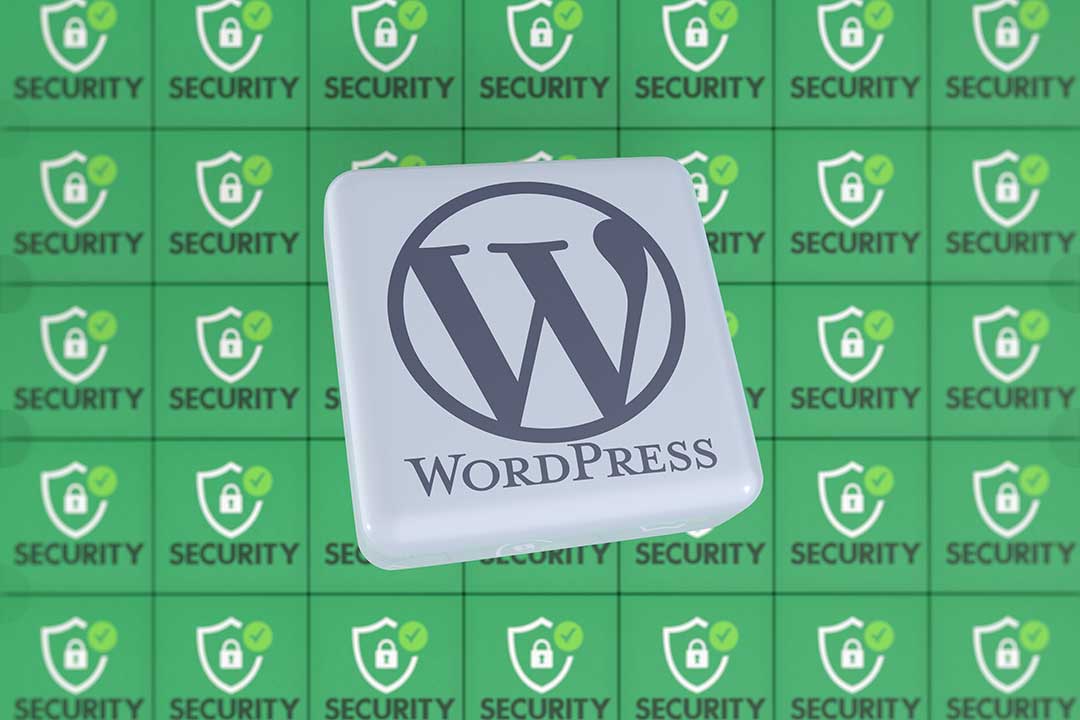Protect your website from hacking: The importance of website security

How to Protect your website from hacking must be the first thing you should consider when you go online with your business or brand. In today’s digital age, websites are crucial to success for businesses, organizations, and individuals. They act as a gateway to connect with potential customers, showcase products or services, and even provide valuable information to the public. However, with this increased reliance on websites comes the unfortunate reality of website hacking.
Table of Contents
A. Why website security is essential
Protect sensitive information
Websites often store sensitive personal details, financial data, and login credentials. A security breach can result in the theft of this information, which can be used for identity theft or other malicious purposes.
Maintain website functionality
Hacking can cause a website to malfunction or become inaccessible. This can result in a loss of revenue for businesses or a decrease in website traffic for individuals.
Preserve website reputation: A hacked website can damage a website’s reputation, resulting in a loss of trust from customers and visitors. This can have long-term effects on a website’s success.
B. The prevalence of website hacking
Statistics on website hacking incidents
According to recent statistics, website hacking has become increasingly common, with over 40% of websites experiencing a cyber attack yearly.
Common consequences of website hacking
These attacks can result in severe consequences such as loss of valuable data, damage to a website’s reputation, and even financial loss. It is essential to take measures to protect your website from such attacks.
In the rest of this article, we will delve into the importance of website security and ways to protect your website from hacking. We’ll explore common website security threats, methods to protect your website and additional measures for maximum protection. By the end of this article, you’ll better understand how to safeguard your website and prevent hacking attempts.
Common Website Security Threats
Common website security threats are potential risks or vulnerabilities that can compromise the security of your website. Here are some of the most common website security threats:
Malware
Malware is a type of malicious software that can be installed on a website to gain unauthorized access or steal sensitive data. Malware can take many forms, such as viruses, worms, Trojan horses, or ransomware. Malware can be used to steal login credentials and sensitive financial information or to hijack the website for malicious purposes.
Phishing attacks
Phishing attacks involve sending fraudulent emails or messages to website users to trick them into providing sensitive information, such as login credentials or credit card details. These attacks often use social engineering techniques to create a sense of urgency or fear in the user, prompting them to reveal confidential information.
Cross-site scripting (XSS)
XSS attacks exploit vulnerabilities in a website’s code to inject malicious scripts into web pages, potentially allowing attackers to steal sensitive data or take control of the website. This can be done through various methods, such as inputting malicious code into forms or injecting scripts into URLs.
SQL injection
In SQL injection, attackers inject malicious SQL code into a website’s database, potentially allowing them to access, modify, or delete sensitive data. This attack can be used to gain unauthorized access to a website’s backend, steal sensitive information, or take control of the website.
DDoS attacks
Distributed Denial of Service (DDoS) attacks involve overwhelming a website with traffic to make it inaccessible, potentially causing loss of revenue and damage to the website’s reputation. These attacks can be carried out by a network of compromised computers or through botnets, which are large groups of infected devices controlled by a single attacker.
Methods to Protect Your Website
Protecting your website from security threats is critical to ensure the safety and privacy of your users and the integrity of your website. Here are some methods to protect your website:
Use Strong Passwords and Authentication Measures
The first step to securing your website is to use strong passwords and authentication measures. This means using a combination of upper and lowercase letters, numbers, and symbols and avoiding easily guessable information like your name or birthdate. Additionally, you can implement two-factor authentication (2FA) to add an extra layer of security to your login process.
Keep Your Software Updated
Keeping your website software and plugins up to date is crucial to prevent vulnerabilities and security breaches. Outdated software and plugins can leave your website vulnerable to attacks and compromise user data. Make sure to check for updates and install them promptly and regularly.
Use HTTPS and SSL Certificates
HTTPS encryption and SSL certificates provide an additional layer of security to your website by encrypting user data and verifying the authenticity of your website. HTTPS encryption protects sensitive information such as login credentials, credit card details, and personal information from interception and theft by hackers.
Implement Website Security Plugins
Website security plugins can help you detect and prevent security breaches on your website. Some popular security plugins for WordPress include Wordfence, iThemes Security, and Sucuri. These plugins can help you scan for vulnerabilities, block malicious traffic, and implement firewall rules to protect your website.
Regularly Backup Your Website
Regularly backing up your website is essential to ensure that you can quickly recover from a security breach or data loss. You can use backup plugins like UpdraftPlus or BackupBuddy to schedule regular backups of your website’s files and database. Additionally, you can store your backups in a secure offsite location to ensure they are safe from cyber threats.
By implementing these methods, you can significantly reduce the risk of security breaches and protect your website from potential threats.
Additional Measures for Maximum Security
While implementing the methods mentioned in the previous section can significantly improve your website’s security, there are additional measures you can take to ensure maximum security. Here are some of them:
Hire a Professional Website Security Service
Suppose you lack the technical expertise to secure your website or want to ensure maximum protection. In that case, you can hire a professional website security service. These services can provide comprehensive security solutions, including vulnerability scanning, malware removal, and real-time monitoring.
Implement Security Policies for Your Team
Implementing security policies for your team can help prevent security breaches caused by human error. You can create guidelines for password management, software updates, and access control to ensure your team follows security best practices. Additionally, you can conduct regular security training and awareness sessions to keep your team informed about the latest security threats and best practices.
Educate Your Users on Website Security
Educating your users on website security can help prevent security breaches caused by user error. You can create a security awareness page on your website and share security tips and best practices with your users. Additionally, you can send regular security newsletters and conduct phishing awareness tests to keep your users informed and alert.
By implementing these additional measures, you can ensure maximum security for your website and protect it from advanced cyber threats.
FAQS: Website security and protect your site from hacking
Why Is Website Security Important?
Website security is essential to protect your website from cyber threats like hacking, malware, and data breaches. A secure website can help you build customer trust, protect your business reputation, and avoid legal and financial liabilities.
What Are Some Common Website Security Threats?
Common website security threats include malware, phishing attacks, cross-site scripting (XSS), SQL injection, and DDoS attacks. These threats can compromise your website’s data, damage your business reputation, and cause financial losses.
How Can I Protect My Website From Hacking?
You can protect your website from hacking by using strong passwords and authentication measures, keeping your software updated, using HTTPS and SSL certificates, implementing website security plugins, and regularly backing up your website. Additionally, you can hire a professional website security service, enforce security policies for your team, and educate your users on website security.
What Is an SSL Certificate, And Why Is It Important For Website Security?
An SSL certificate is a digital certificate that encrypts data between a website and its visitors, ensuring secure communication. It is necessary for website security because it helps protect sensitive information, such as passwords and credit card details, from hackers, intercepting it.
How Often Should I Back Up My Website?
You should back up your website regularly to ensure that you have a recent copy of your website’s data in case of a security breach or system failure. The frequency of backup depends on the frequency of changes made to your website. It is recommended to back up your website daily or weekly, depending on the frequency of updates.
Conclusion: Website security and protect your site from hacking
In today’s digital age, website security has become more important. The prevalence of website hacking and cyber threats can compromise your website’s data, damage your business reputation, and cause financial losses. Therefore, taking proactive measures to protect your website from these threats is crucial.
This article discussed common websites security threats, such as malware, phishing attacks, cross-site scripting (XSS), SQL injection, and DDoS attacks. We also provided methods to protect your website, including using strong passwords and authentication measures, keeping your software updated, using HTTPS and SSL certificates, implementing website security plugins, and regularly backing up your website. Additionally, we discussed some additional measures for maximum security, such as hiring a professional website security service, implementing security policies for your team, and educating your users on website security.
In conclusion, protecting your website is not something to be taken lightly. Implementing the measures discussed in this article can protect your website from cyber threats, build trust with your customers, and avoid legal and financial liabilities. So, take action now to protect your website and protect your business.



